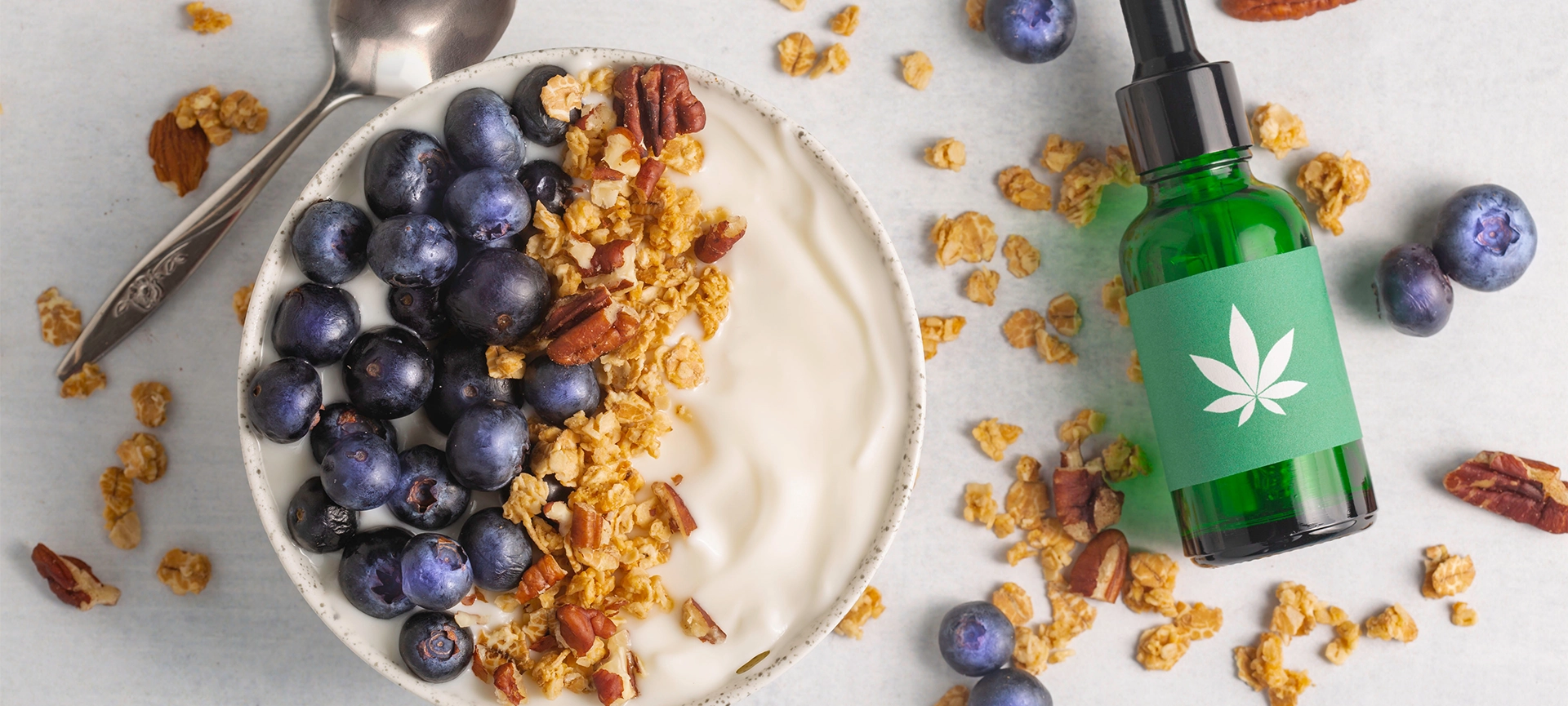Imagine ditching the stress, unwinding after a long day, or simply finding a creative spark with a single puff. That’s the promise many find in marijuana.
But for some, that initial comfort can morph into dependence, leaving them wrestling with withdrawal symptoms when they try to quit.
Disrupted sleep, irritability, and cravings can feel overwhelming. If that’s you, know this: you’re not alone. And there is a path to feeling better.
If you’re struggling to regain health, this article is for you. We will explore how proper nutrition can be a powerful ally during weed withdrawal, easing the journey back to a healthier, happier you.
Why Nutrition Matters During Withdrawal
Detox is the process where your body rids itself from the substances you depend on. While your body is naturally equipped to do this, the process can be stressful. Proper nutrition ensures your liver, kidneys, and other organs involved in detoxification have the resources to work optimally.
When withdrawing from weed, you might experience the following:
- Headaches
- Irritability
- Cravings
- Sleep problems
- Digestive upset
A balanced diet won’t eliminate these but can lessen their severity. Nutritious food helps regulate blood sugar, which impacts energy and mood and provides essential vitamins and minerals your body needs to cope with stress.
Weed withdrawal can worsen existing mental health conditions or create temporary ones like anxiety and depression.
While proper nutrition isn’t a replacement for therapy or medication, it can make a difference. Your brain needs a steady supply of nutrients to produce the neurotransmitters that regulate mood.

The Importance of Nutrition for Long-Term Recovery
While this blog’s primary focus is easing the difficulties of weed withdrawal, it’s good to keep in mind that good nutrition is a cornerstone of lasting recovery from any substance use disorder.
Here’s why.
Rebuilding the Body
Substance abuse places a tremendous burden on your body. Vital nutrients are depleted, leaving organs like your liver, kidneys, and heart struggling to function optimally. Enrich your diet with fruits, vegetables, lean proteins, and whole grains. They provide the building blocks your body needs to repair and restore overall health.
Managing Cravings
Cravings for drugs or alcohol are often intense, especially during early recovery. Balanced meals and healthy snacks help stabilize your blood sugar levels.
Those dips and spikes in blood sugar can worsen cravings, making you more likely to relapse. Good nutrition creates a sense of evenness within your body.
Mental Clarity
The cognitive challenges of addiction recovery are real. Learning new coping mechanisms, emotional regulation, and rebuilding relationships with loved ones require focus and mental energy.
Your brain can’t do its best without a steady supply of nutrients. Proper nutrition ensures those tools you develop in therapy are put to their best use.
Foods for Recovery
Focus on whole, unprocessed foods as the backbone of your diet. Fruits and vegetables provide vitamins and minerals, whole grains offer sustained energy, and lean proteins support tissue repair and muscle health.
Here are some specific examples of nutrient-rich foods to incorporate:
- Salmon – Packed with Omega-3 fatty acids, which support brain health and reduce inflammation.
- Eggs – A great source of protein and choline, a nutrient essential for brain function.
- Spinach – Full of vitamins, minerals, and antioxidants vital for overall health.
Tip: Everyone’s dietary needs are unique. Consulting with a registered dietician is highly recommended if you have underlying health conditions or specific dietary concerns. They can work with you and the Addiction Rehab Toronto team to create a personalized nutrition plan that supports your recovery goals.
Related Article: The Transformative Benefits of Quitting Weed: A Journey to Wellness
Essential Nutrients for Weed Withdrawal
You might feel like eating little during withdrawal, but choosing nourishing foods whenever possible is one form of self-care that can pay dividends.
Let’s look at specific nutrients that can support your body’s natural healing processes and pave the way for a smoother recovery.
Hydration – Staying hydrated is vital during withdrawal. Your body works hard to flush out toxins; water supports this process.
Lack of water can worsen headaches, fatigue, and cravings. Aim for plenty of water throughout the day, and consider electrolyte-rich beverages (like unsweetened coconut water) to replenish essential minerals.
Protein – Proteins are the building blocks for recovery. They are essential for tissue repair and maintaining energy levels, both of which take a hit during withdrawal.
Focus on lean sources like chicken, fish, beans, lentils, and tofu. These will keep you full and satisfied, minimizing the energy crashes that can lead to cravings.
Vitamins and minerals – Weed withdrawal can deplete certain vitamins and minerals. Here are a few to focus on:
B Vitamins – These are important for energy production and nervous system function. Find them in leafy greens, whole grains, and fortified cereals. Sometimes, a B-complex supplement can be helpful in the early stages of recovery.
Magnesium – This mineral is involved in muscle relaxation and sleep regulation. Pumpkin seeds, nuts, spinach, and dark chocolate are good sources.
Omega-3 fatty acids – Omega-3s can help reduce inflammation throughout the body and may play a role in improving mood. They’re primarily found in fatty fish (like salmon), flaxseeds, chia seeds, and walnuts.
While these nutrients can support withdrawal, they do not replace professional treatment. If you or a loved one needs help, please don’t hesitate to contact a reputable rehabilitation centre in Toronto. Addiction Rehab Toronto offers treatment for Marijuana addiction.
Practical Eating Tips During Withdrawal
Eating healthy can seem like the last thing on your mind when dealing with withdrawal symptoms. Yet, strategic food choices can make a real difference in how you feel physically and emotionally.
Here are some tips to make it easy for you to eat healthily during this challenging time:
- Small, frequent meals – Nausea and a lack of appetite are common during withdrawal. Try eating smaller portions every few hours rather than forcing yourself to eat three big meals. This approach eases digestion and prevents blood sugar crashes that can worsen cravings.
- Focus on whole foods – Whole, unprocessed foods give your body nutrients. Think:
- Fruits and vegetables: Packed with vitamins, minerals, and fibre.
- Whole grains: Offer sustained energy (brown rice, quinoa, whole-wheat bread)
- Lean proteins: Support cell repair and muscle health (chicken, fish, tofu, beans)
- Easy-to-digest options – When nausea is a concern, eat foods that are easy for your body to process:
- Soups and broths: Warm and comforting
- Bananas, rice, applesauce, toast: The classic “BRAT” diet known for being gentle on the stomach
- Oatmeal: Filling and packed with fibre
- Yogurt: Contains probiotics that can benefit gut health
- Comfort foods BUT in moderation – Craving sugary or fatty treats during withdrawal is expected. Depriving yourself entirely can backfire. Instead, allow yourself a portion of your favourite comfort food with something nutritious. For example, a few squares of dark chocolate alongside a handful of berries.
It’s okay if things don’t go perfectly. Listen to your body, stay hydrated, and prioritize getting nourishment as best as possible.
Related Article: The Role of Nutrition in Addiction Recovery

Your Road to Health
While proper nutrition alone isn’t a cure for addiction, it’s a precious tool that can make the withdrawal process more manageable and support your long-term recovery journey. Making conscious food choices gives your body and mind a fighting chance to heal and recover.
However, if you’re struggling with weed dependence, know that nutrition is just one piece of the puzzle. Seeking professional help is essential for lasting recovery.
Addiction Rehab Toronto offers comprehensive treatment programs that address not just the physical aspects of addiction but the underlying emotional and mental health components as well. Our compassionate rehab experts are here to guide you every step of the way.
Call us today to begin your journey to recovery.







